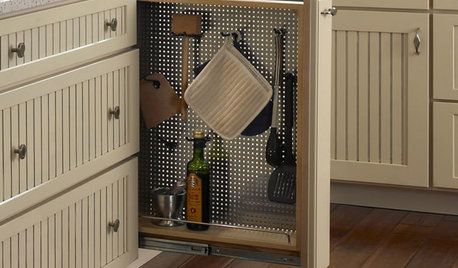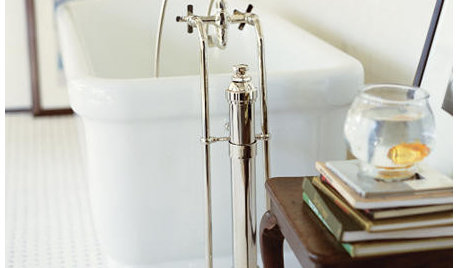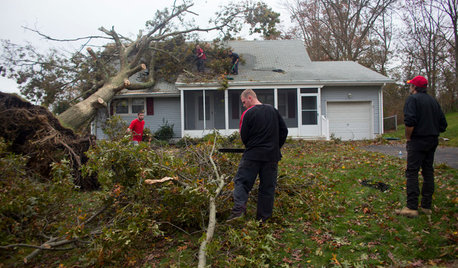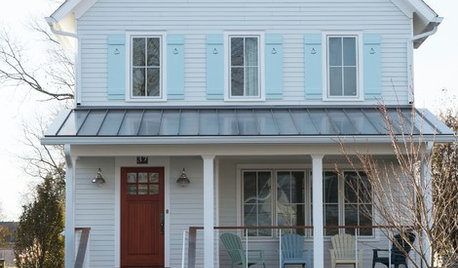storing hurricane *necessities*
joulesR4me
18 years ago
Related Stories

DISASTER PREP & RECOVERYHouzz Tour: Family Rebuilds Home and Community After Hurricane Sandy
This restored coastal New Jersey house — now raised 9 feet off the ground — offers inspiration for neighbors considering a return
Full Story
KITCHEN DESIGNGuest Picks: Small Kitchen Necessities
20 ways to organize and maximize every square inch of a tiny cooking space
Full Story
BATHROOM DESIGNWhere to Put Your Freestanding-Bathtub Necessities
Every Freestanding Tub Needs a Spot for Your Novel, Phone or Rubber Ducky
Full Story
MOST POPULARWhat to Do After a Hurricane or Flood
How you treat your home after a natural disaster can make all the difference in its future livability — and your own personal safety
Full Story
ARCHITECTURE4 Things a Hurricane Teaches You About Good Design
When the power goes out, a home's design can be as important as packaged food and a hand-crank radio. See how from a firsthand account
Full Story
Hurricanes Turn Candles Into Elegant Fall and Winter Décor
Add height to a centerpiece or vignette with the glow and shine of these tall glass candleholders
Full Story
DISASTER PREP & RECOVERYHouzz Tour: Modern Farmhouse Emerges From Hurricane Sandy Devastation
A homeowner loses her cottage but gains a new energy-efficient, low-maintenance home
Full Story
ECLECTIC STYLE5 Reasons to Hit That Secondhand Store
New things have their place, but old things have a history and beauty all their own
Full Story
Practical and Pretty Ideas for Storing Linens
Enlist Baskets, Shelves, Armoires and More to Keep Your Towels Tidy
Full Story
CLOSETS8 Dream Closets Go Beyond Storing Clothes
Yes, they've still got hangers and drawers. But these luxurious dressing rooms also have views, artwork or an added purpose
Full StorySponsored
Columbus Area's Luxury Design Build Firm | 17x Best of Houzz Winner!
More Discussions











talley_sue_nyc
mariend
Related Professionals
Annapolis Custom Closet Designers · Lynn Custom Closet Designers · Roswell Custom Closet Designers · Chatsworth Custom Closet Designers · Fernway Interior Designers & Decorators · Gloucester City Interior Designers & Decorators · Hainesport Home Builders · Manassas Home Builders · Monticello Home Builders · Caldwell Carpenters · Carol Stream Carpenters · Daly City Carpenters · La Grange Carpenters · Maple Valley Carpenters · Stratford Carpentersgina_in_fl
UAHMom
cupofkindness
OKMoreh
talley_sue_nyc
apoem